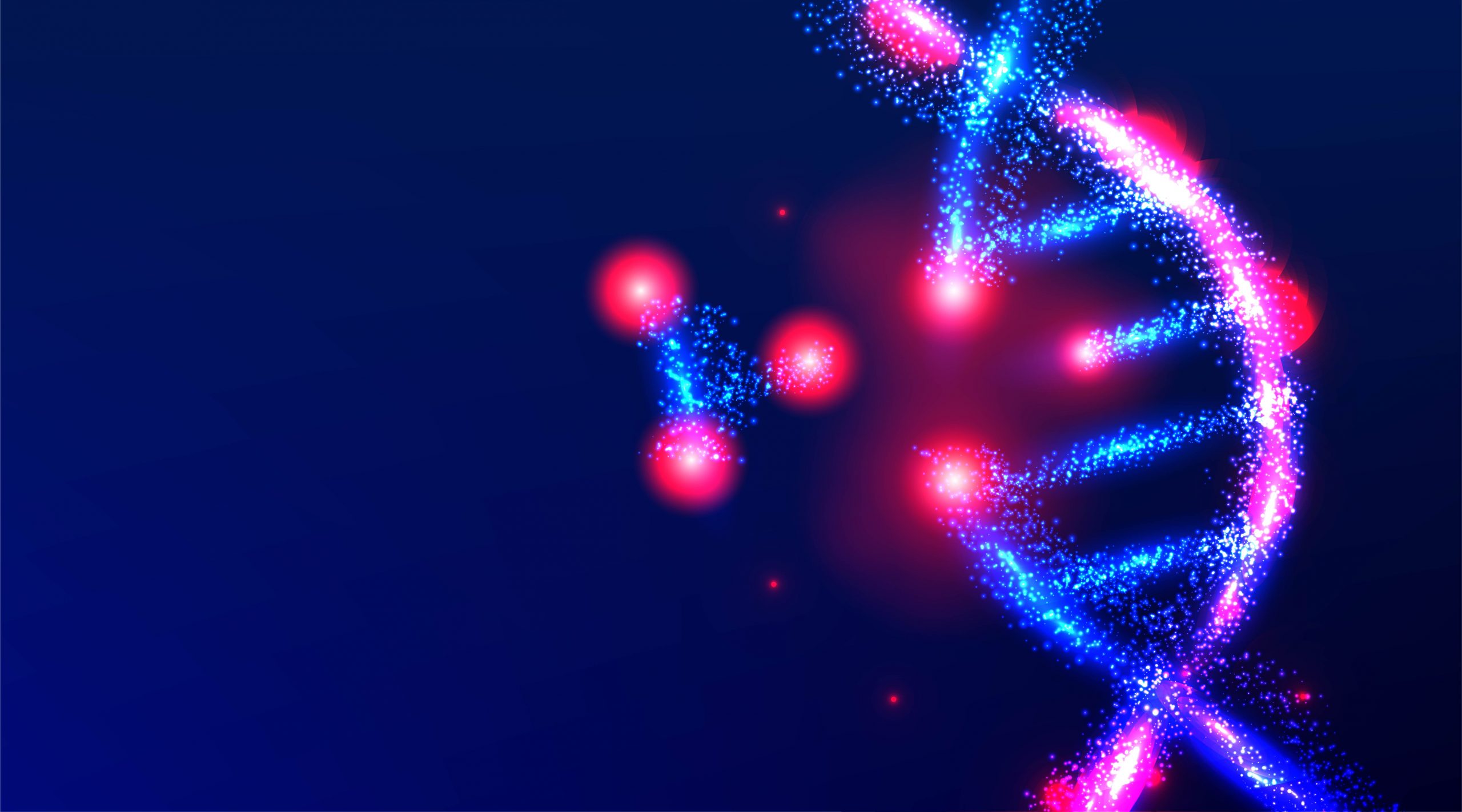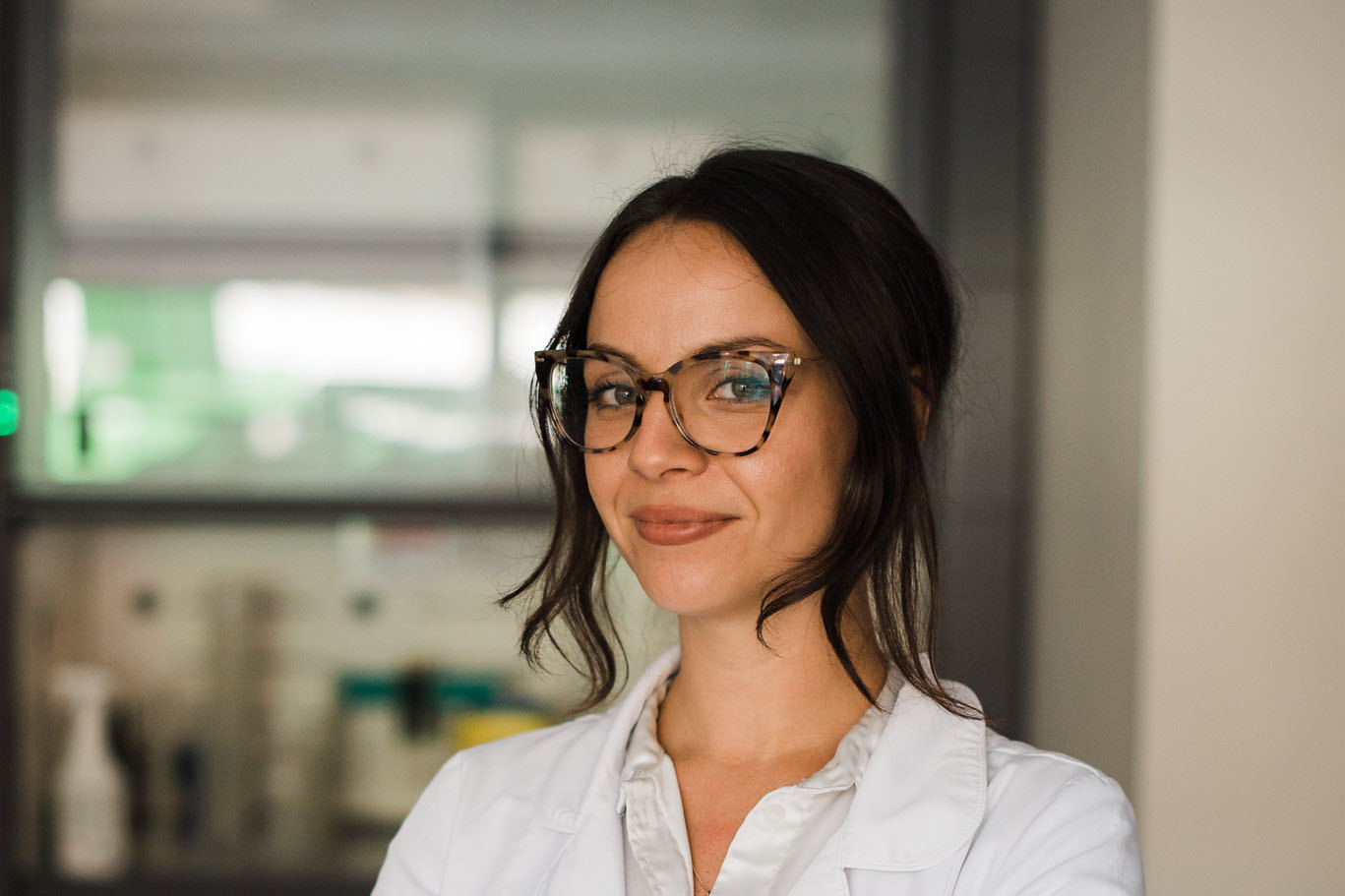Dr. Gabrielė Žukauskaitė: What Does the Genome of Chernobyl Liquidators Tells Us?

“Lithuania is unique in that its people have survived the nuclear accident in the Chernobyl power plant, its aftermath and participated in the clean-up work. The group of Lithuanians that survived Chernobyl, has not been studied in any depth, and, in particular, not at the genome level. We have little data on the exact doses of ionising radiation that Lithuanian citizens were exposed to nor the additional impact on their health of the clean-up work following the disaster,” said medical geneticist, Dr. Gabrielė Žukauskaitė, who successfully defended her doctoral dissertation earlier this year, at Vilnius University’s Faculty of Medicine on “The evaluation of genomic variant and positive natural selection loci effects in the Lithuanian population”. We asked her about her dissertation research, the challenges she encountered and the ultimate success of her research.
The uniqueness of the research was undeniable
“In my thesis, I examined the genomes of the Lithuanian Chernobyl clean-up workers and the general Lithuanian population. The aim of the research was to determine the differences between the two groups in the positive natural selection effects on the genome. By identifying these different genomic effects, it was possible to better understand why the clean-up workers survived working in such harmful conditions,” Dr Žukauskaitė explained. According to her research, around 7,000 Lithuanians participated in the clean-up operation after the accident. More than half of them have now passed away, but the other half have adapted to the lifelong consequences of the disaster, such as ionising radiation, psychological trauma, alcohol dependency and others. “Some of these individuals are ageing relatively healthily,” the doctor noted. She explained that the identification of the reasons for adaptation and survival under such circumstances is particularly relevant nowadays, since we continue to live under the shadow of a nuclear threat. “In my dissertation, I set out to identify and evaluate the role of candidate exposure genomic variants and positive selection loci effects on adaptation. The findings of the research allowed us to identify the genomic loci that protected the Chernobyl clean-up workers.”
Although some people are ageing relatively healthily, the research showed that Chernobyl clean-up workers have a higher incidence of depression compared to the general population. “This could be explained by the psychological experience during the clean-up work, insufficient attention to this special group of people, and the unique genomic variant characteristics of this group,” the doctor noted. The research identified candidate genes that may have an impact on the high incidence of adverse mental health conditions among this group. “Psychosocial support programmes should be provided for these people to mitigate the negative effects,” she suggested. The research also identified genomic variants that may have protected the clean-up workers from exfoliation syndrome, glaucoma and coronary heart disease. “Despite this, cardiovascular diseases are among the most prevalent among this group. This might also be the influence of lifestyle factors.” The study also identified 22 key positive natural selection effects on genome loci unique to the clean-up workers. “Genome loci with positive selection effect on are loci beneficial for the adaptation and survival of the population. Genes identified in these loci are involved in DNA damage repair mechanisms, regulate the cell cycle, maintain homeostasis, and are therefore significant for the adaptation of this group to the consequences of the Chernobyl catastrophe,” Dr. G. Žukauskaitė pointed out.

According to the doctor, the research was far from free of challenges and difficulties. One of the main challenges was the collection of samples from the study group. “Many did not survive, so only a very small proportion could be tested. There is no official register of the Chernobyl clean-up workers in Lithuania, so we asked for help from the Chernobyl Association, which unites former clean-up workers across the country. After contacting the regional chairs of the association, we found out that there was only a very small number of still active, healthy individuals who would agree to take part in this research,” Dr Žukauskaitė noted. In total, she managed to collect samples from 134 clean-up workers for her study. “Due to their being elderly, it was necessary to travel across Lithuania to collect the samples and to conduct lengthy interviews about their experience during the clean-up work, their genealogy and any health problems,” she explained. The introduction of a new method for determining positive natural selection was also challenging. It required a considerable amount of knowledge both of genetics and bioinformatics, as well as cooperation with international scientists. “Interdisciplinarity is crucial in research and to obtaining innovative results.”
Future plans include research into the genetics of infertility
“During such studies, the success of PhD research is often measured in the arena of published literature. However, I believe that the uniqueness and continuity of the chosen topic are the most important. With these components, a researcher’s curiosity is still maintained after the dissertation has been defended. For example, the material collected during our research, and the findings, certainly allow us to think about the continuation of the research and some new ideas,” Dr. G. Žukauskaitė maintained. A researcher is very lucky if they can easily apply what they have learned in their clinical practice to their research: “I can easily apply the research methods I have learned in clinical practice to scientific research, and the knowledge accumulated during research allows me to analyse and critically assess the pathogenicity of the identified gene changes in patients.”
The medical geneticist was pleased that during her doctoral studies she had the opportunity not only to deepen her knowledge of human genetics, but also bioinformatics, which is particularly useful in today’s technological world. “There is more room for creativity and self-expression on the path of a scientist, and the findings and conclusions allow us to contribute to the discovery of fundamental scientific truths. This, in my opinion, is one of the most intriguing aspects of scientific work,” researcher explained. She added that in the future she would like to continue her work in population genetics and to improve her knowledge in the field of the genetics as it applies to human infertility, to explain the genetic causes of infertility in both men and women, and to study the field of embryology and the genetic processes of foetal development.